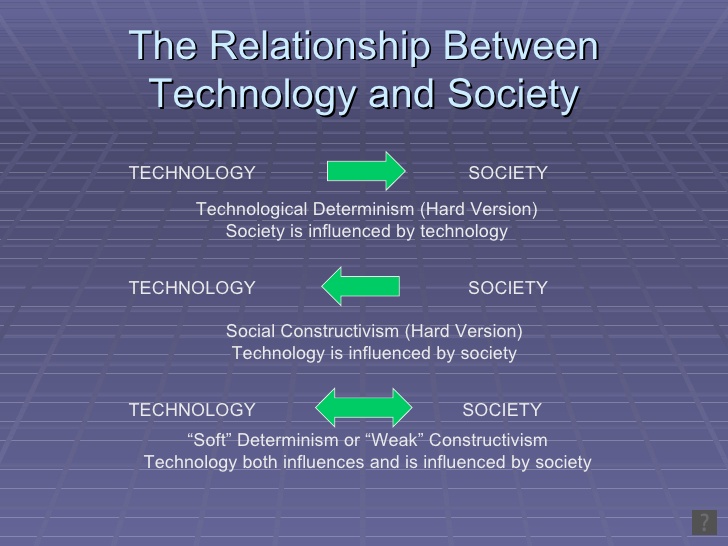Technological determinism is a philosophical theory that posits technology as the principal driving force behind social, cultural, and economic changes. In an era where technological advancements penetrate every facet of our lives, the discussion around technological determinism becomes increasingly relevant. This notion challenges us to probe deeper into our relationship with technology and examine its broader implications on society and the environment.
At its core, technological determinism suggests that the development and application of technology dictate societal evolution. This perspective insinuates a linear and almost inevitable progression: as technology advances, it reshapes human behavior, cultural norms, and institutional structures. While this theory encapsulates a compelling narrative, it also raises critical questions regarding agency, responsibility, and the dynamic interplay between society and technological innovation.
An observation widely reported in various contexts is that societies with advanced technological capabilities exhibit distinct behavioral patterns. For instance, the prevalence of digital communication has transformed interpersonal relationships, fostering a culture of immediacy and constant connectivity. This transformation is emblematic of a broader trend, where technology appears to supersede traditional social constructs, leading to a redefinition of concepts such as community and belonging.
However, an intriguing aspect of technological determinism is the implication that such transformations are not merely beneficial or benign. In many ways, technology imposes constraints as much as it offers freedoms. The omnipresent influence of algorithms and data analytics in decision-making processes introduces a new form of determinism, where human choices may be increasingly mediated by technological design. This conceptual framework provokes a critical examination of technology’s role as both a tool for empowerment and a mechanism of control.
Moreover, the fascination with technological determinism stems from its capacity to elucidate the paradoxes inherent in technological progress. As humanity seeks solutions to contemporary challenges—climate change being a paramount example—it often turns to technological innovations. Renewable energy technologies, carbon capture, and geoengineering represent significant strides toward mitigating climate impacts; however, these solutions beg the question: do they address the underlying systemic issues contributing to environmental degradation?
Contextually, it is critical to interrogate the foundational narratives that herald technology as the panacea for various societal maladies. The assumption that technological innovation will unilaterally lead to positive outcomes overlooks the importance of the socio-political frameworks within which technology operates. For instance, electric vehicles may offer a more sustainable mode of transportation, but they do not inherently resolve the infrastructural and economic challenges associated with widespread adoption. Similarly, advancements in clean energy must be accompanied by systemic changes in policy and human behavior to effectuate meaningful progress.
In examining the interplay between technology and society, one must also reckon with the concept of technological momentum. This term encapsulates the idea that technological developments gain power and influence over time, often resulting in a path-dependent trajectory that is challenging to alter. Once a technology becomes entrenched within societal structures, it not only shapes future innovations but also restricts alternative pathways. The reliance on fossil fuels, for example, has created a complex web of economic dependencies that hampers efforts to transition toward sustainable energy sources.
This phenomenon underscores the importance of critical engagement with technology, particularly in the context of climate action. The belief that technology alone can rectify environmental crises fosters complacency, detracting from the urgent need for behavioral and policy shifts. As we navigate the Anthropocene, it becomes imperative to cultivate a holistic understanding of how technology interweaves with environmental stewardship and global citizenship.
Furthermore, the discussion on technological determinism invites a reevaluation of ethical considerations surrounding innovation. The potentials of artificial intelligence, biotechnology, and surveillance technologies raise salient questions about privacy, equity, and the human experience. Who benefits from technological advancements, and at what cost? With every innovation, society must grapple with the ramifications, reconciling the promise of progress with the principles of social justice and environmental sustainability.
In conclusion, technological determinism presents a compelling lens through which we can analyze the complexities of our technological landscape. While it illuminates the transformative potential of technology, it simultaneously challenges us to recognize our agency in shaping its trajectory. As we confront the multifaceted challenges of the 21st century, including climate change, it is incumbent upon society to critically engage with technology, ensuring it serves as a catalyst for positive change rather than an unyielding determinant of future possibilities.
In essence, the pursuit of a sustainable future necessitates a recalibration of our relationship with technology. Emphasizing collaborative frameworks and inclusive dialogues will empower communities to harness innovation responsibly. By fostering a culture of reflection and accountability, we can forge a path that not only accommodates technological progress but also prioritizes the well-being of the planet and its inhabitants. The narrative of technological determinism, while provocative, should serve as a clarion call to action—a reminder of the profound interconnection between human choices and technological trajectories in the unfolding narrative of our civilization.
